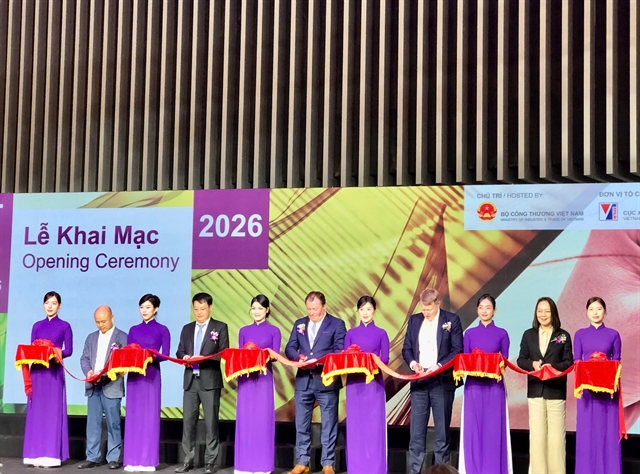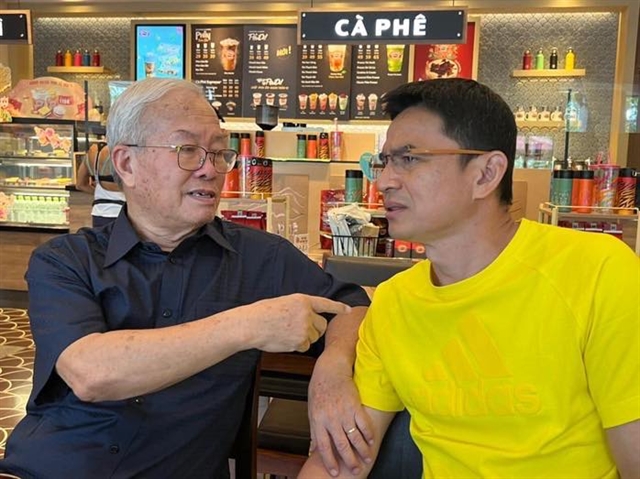 Sports
Sports
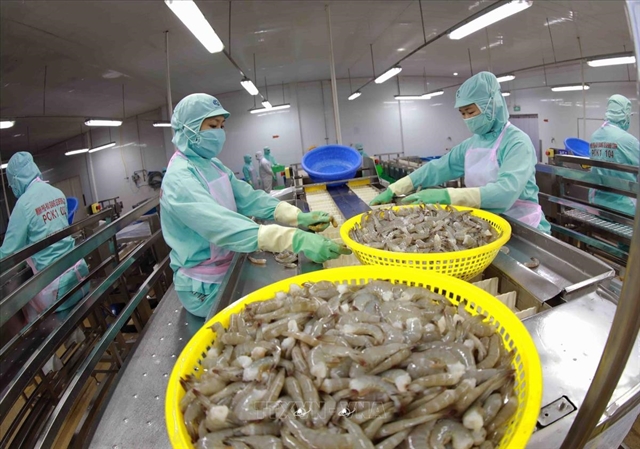
Olympics
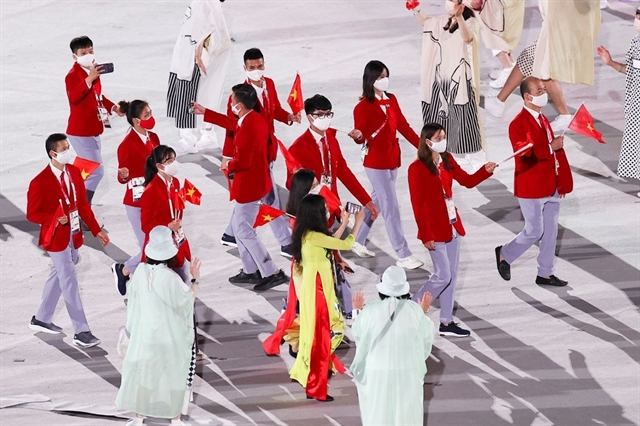
|
| Team Việt Nam seen during the opening ceremony of the Tokyo 2020 Olympic Games at the Olympic Stadium on July 23 in Tokyo, Japan. AFP/VNA Photo |
Thanh Hà
HÀ NỘI - An Olympic medal is a dream not only of athletes but also nations. Every four years, world elite athletes gather together to vie for glory, which for many is a once in a lifetime opportunity.
In its 40 years taking part in the global event, Việt Nam has grabbed one gold, three silvers and one bronze. The poor results at the recent Tokyo Olympics have led to national sport leaders changing their minds on Việt Nam's sport investment.
"We will change our strategy. We will not focus most on the SEA Games, a regional competition, which we have done previously. We will pay attention to the Olympics and continental Asian Games (ASIAD)," said Trần Đức Phấn, deputy director of the Việt Nam Sport Administration (VSA).
Lofty goals, yet success lacking
In 2013, a plan for Việt Nam’s sport development to 2020 was approved. It set specific targets for each competition that the country took part in.
The SEA Games was considered the most important tournament, and the Việt Nam team was required to always make the top three.
In ASIAD, athletes and coaches must win 2-3 golds in 2014 and 10-15 golds in 2018 and rank in the top 15.
In the Olympics, the team was asked to have up to 40 participants and win 1 or 2 medals at the 2016 Olympics. The goal was for 30-50 athletes to compete at Olympics from 2020 to 2030 and win more than two medals, including gold.
However, most tasks remain uncompleted.
The best result since 2013 is that of gold for marksman Hoàng Xuân Vinh in the Rio Olympics in 2016.
Other remarkable achievements include a silver at the AFC Asian U23 Championship in 2018, golds for the national men's and women's football team at the AFF Cup and SEA Games in 2019, and the national men's football team making the World Cup third-round qualification for the first time.
But these results cannot cover Việt Nam's poor performance at the 2014 ASIAD where they got one gold and ranked 21st out of 45 teams. Four years later, they took four golds and placed 16th.
At the 2012 Olympics, Việt Nam sent 18 athletes but went home with nothing. At the Rio Olympics in 2016, Vinh's gold and silver helped Việt Nam stand at 48th among 206 countries.
The historic score was expected to strongly push Việt Nam but it did not do so. Eighteen athletes flew to Tokyo with the nation's expectation, but after two weeks they returned home empty-handed.
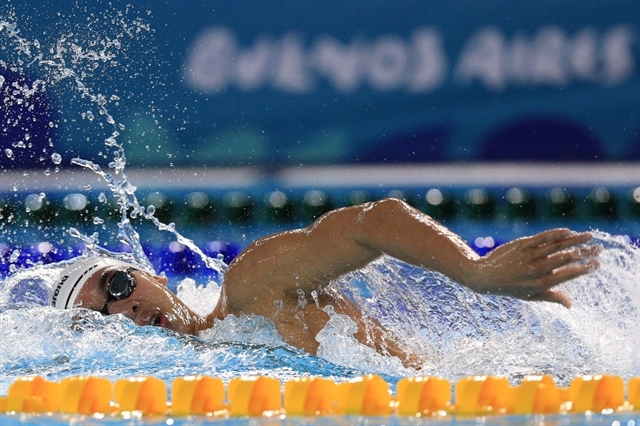
|
| Swimmer Nguyễn Huy Hoàng of Việt Nam took part in men's 800m and 1,500m freestyle at the Tokyo Olympics. He failed to secure a slot in the finals of both events. AFP/VNA Photo |
Speaking to the media, Phấn confirmed that there was a big gap between Vietnamese athletes and the world. And the country had many things to do to improve its Olympic record.
"Our athletes are at a lower level than world athletes in many terms. We are shorter, thinner, and weaker in both physical and mental strength," said Phấn.
"I saw two Jamaican runners who competed in the women's 100m final. They were tall, thick and muscled. Just in seconds of looking at them I guessed they would be champions, and they were.”
“Runner Quách Thị Lan, swimmer Nguyễn Huy Hoàng and boxer Nguyễn Văn Đương are considered having good shapes among local athletes. But they were small when coming to Tokyo. Meanwhile weightlifter Hoàng Thị Duyên was shaking in her Olympic debut. We were not surprised with our Tokyo result although our athletes did their best."
Phấn said it was time to make change and it would be key matter at a national conference to be held to discuss a plan for sport development until 2030, with a view to 2050, in the next few weeks. The plan will be released later this year.
New targets
"The Olympics will be our top priority, then ASIAD and the SEA Games. We will focus on Olympic sports rather than those played only in Asia and ASEAN. This change is the core of the development strategy and suitable for the reality of the sport movement in Việt Nam," said Phấn.
“No change means no way to getting closer to continent's and world's results where we still face a shortage of finance and personnel.
"Clearly, we cannot vie for medals in sports that require speed, endurance and strong physique. We will choose sports that are suitable for Vietnamese athletes so that we take golds at the 2022 ASIAD. Winning a medal at the next Olympics will be difficult but the ones after that will be possible."
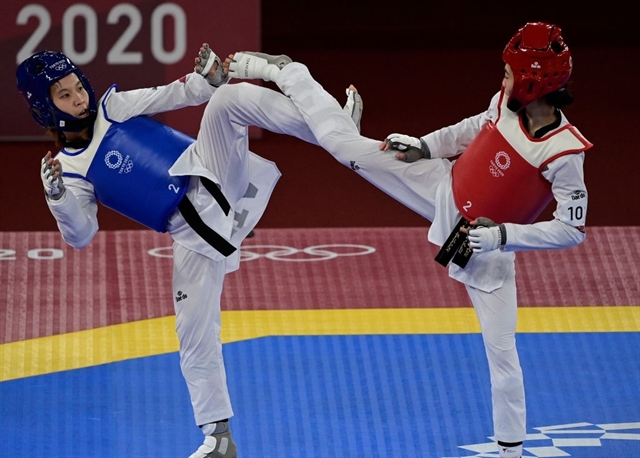
|
| Việt Nam's Trương Thi Kim Tuyền (left) and Thailand's Panipak Wongpattanakit compete in the taekwondo women's U49kg quarter-final bout during the Tokyo 2020 Olympic Games on July 24. AFP/VNA Photo |
Suitable sports that Phấn mentioned are shooting, archery, taekwondo and lightweight categories of weightlifting.
Phấn’s comments have received strong agreement from experts and managers.
Nguyễn Trọng Hổ, VSA's director of the National Sports Complex, added other sports such as badminton and martial arts to the list.
"It is hard to cover all tournaments at once. If we really want to reach the Olympic level, we must invest in Olympic sports first, then sports of the other competitions," he said. "If we focus on them methodically we could vie for medals at the Olympics."
Former VSA's Head of Elite Sport Department Nguyễn Hồng Minh said winning an Olympics medal was a long journey, requiring time, money and hard work.
"Our hero marksman Vinh shot for 23 years before he could have a brilliant moment in Rio. He is an example of a long process to 'produce' an Olympic winner. But with a professional training environment, advanced technologies and facilities, a good nutrition regime and quality coaches, the time will be reduced to five to eight years," he said.
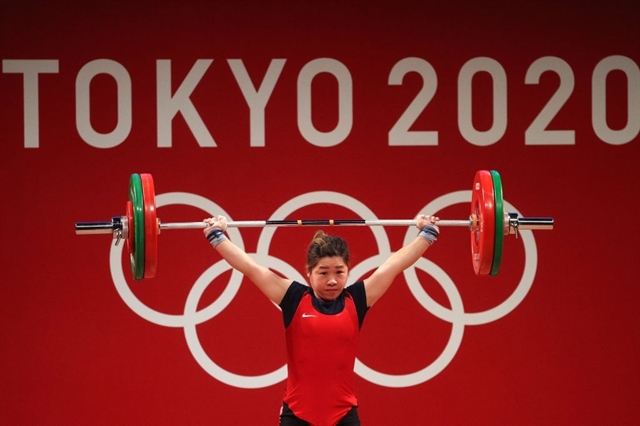
|
| Lifter Hoàng Thị Duyên of Việt Nam competes during the women's 59kg class of the Tokyo 2020 Olympic Games on July 27. Duyên could not win a top-three place in Tokyo but is still Việt Nam's hope at the next Olympic Games. AFP/VNA Photo |
He added that sports needed to raise funds to support sport activities such as sending athletes abroad for intensive training and taking part in elite tournaments to sharpen skills.
"Apart from the state budget we should lure more financial sources from the community including from businesses. ASEAN countries such as Thailand, Singapore and Indonesia have received big support from enterprises. It is a worldwide trend to gain high results," said Minh.
"In short, a comprehensive strategy, which covers good plans, investments, social support, and talented athletes would make us medal favourites in the next one or two Olympics, instead of beating our own records." VNS

